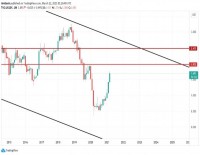|
Opalesque Industry Update – Wall Street banking giant Goldman Sachs is reported to be planning to wind down its proprietary trading unit, Principal Strategies, to comply with the new Dodd-Frank Act that bans banks from making bets using their own money, various media reports said. The story, which was first reported by Bloomberg, indicated that Goldman has deferred formal announcement of the plan while between 65 and 70 staff of the global unit seek to find new jobs. The report quoted its source as a person knowledgeable with the issue, who asked not be named because he was not authorized to divulge these details. The source revealed that some traders may be absorbed by Goldman Sachs in its New York office, while some staff in Asia, led by Hong Kong-based trader 44-year-old Morgan Zse, are said to be trying to raise money to launch a new hedge fund. The team’s members in New York, led by Bob Howard, are in talks to join another asset-management firm, the report said. The news end past speculations. Last month, it was reported that Goldman Sachs was planning to spin off at least part of its proprietary trading operations to comply with the so-called “Volcker rule.” The CNBC report said one option being considered was to seed a hedge fund, to be headed by former Goldman Sachs proprietary traders, with Goldman money, and replace it in the coming years with third party money as the new rule goes into full effect. Goldman Sachs’ spokesman Ed Canaday refused to comment on the issue, Bloomberg said. Bloomberg added that at least 10% of Goldman’s revenues are derived from proprietary trading. But the Dodd-Frank Act prohibits banks from raising capital by betting on their own accounts.
Principal Strategies: Goldman’s internal hedge fund Goldman shifted Principal Strategies, including its trades and assets to the bank’s asset management division a few years back. The move allowed Goldman to decrease the risk of Principal Strategies by half and at the same time open the fund to new clients. The strategy meant that Goldman effectively became a client of itself because the bank had capital invested in the newly created fund.
JP Morgan to shut down proprietary desk
4 to 7 years to comply According to New York-based law firm Davis Polk & Wardwell LLP, US banks have at least four years to bring their proprietary trading into compliance under the Dodd-Frank Act, with a possible extension of an additional three years. Although an earlier analysis made by Lawrence Kaplan, an attorney at Washington-based law firm Paul, Hastings, Janofsky & Walker LLP, said that the “Volcker rule” allows banks and private equity units up to 12 years to comply with the new rule. Kaplan explained that it would take between 15 months to two years after the passage of the Dodd-Frank Act to for the rules to take effect. Banks are then given two years to comply, with the potential for three one-year extensions after that. They could seek another five years for “illiquid” funds such as private equity or real estate before full compliance. However, Gary Townsend, president of Hill-Townsend Capital LLC told Bloomberg Television that no one wants to be the last one to comply with the new rules; that’s why Goldman Sachs and JP Morgan opted to shut down their proprietary desks this early.
“What’s motivating people is that they need to know where they are going, and no one wants to be the last group out the door,” Townsend said. |
Industry Updates
Goldman Sachs to shut down ‘internal hedge fund’ Principal Strategies Unit to comply with Dodd-Frank Act
Monday, September 06, 2010
|
|





 RSS
RSS







